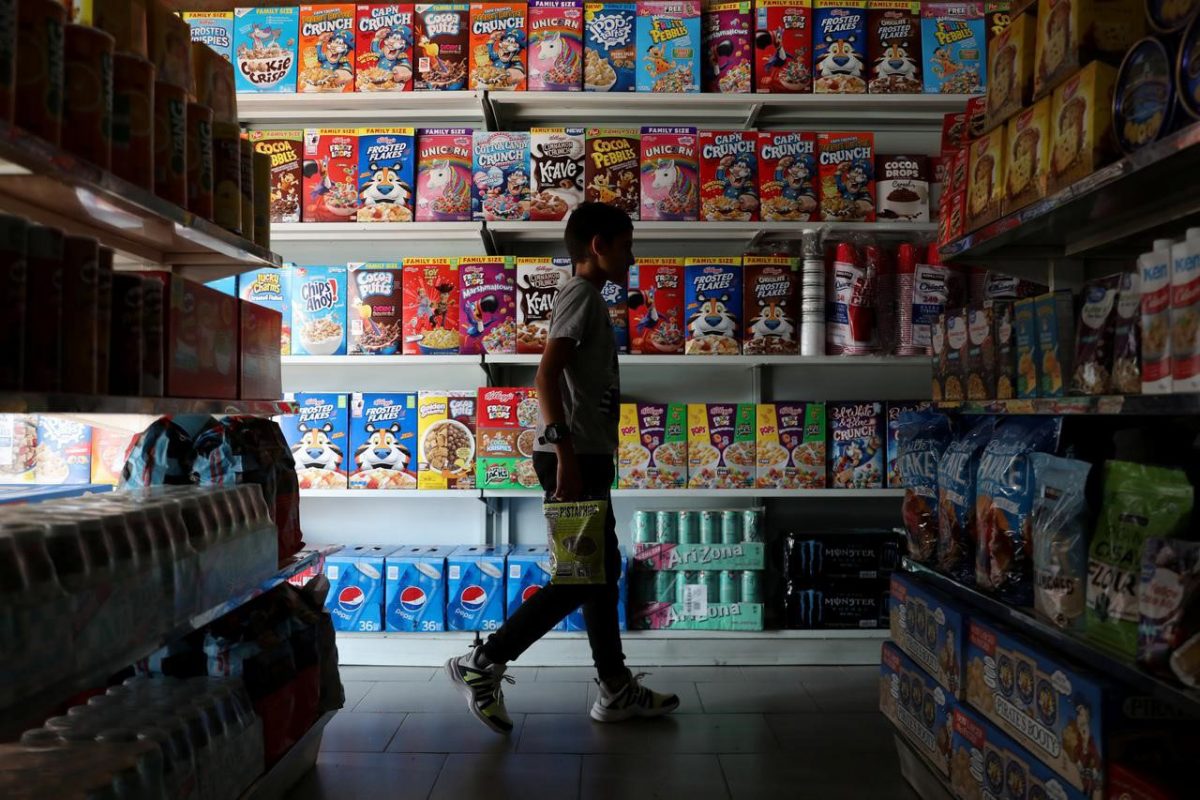
Costco in Caracas: how Florida goods flood Venezuelan stores
By Stabroek News On In Regional News |CARACAS/MIAMI, (Reuters) – While U.S. President Donald Trump wants to drive Venezuela’s socialist ruler out of power with economic sanctions, there has in fact been a burgeoning influx of American-bought goods from Nutella spread to Oreo cookies.
Many toiletries, food items and other imports became impossible to find during Venezuela’s economic implosion under President Nicolas Maduro. Yet now they line the shelves in scores of new U.S. dollar-only shops known as “bodegones”, providing an unlikely safety valve for Maduro.
The reason?
Venezuelan businessmen have taken advantage of his government’s quiet abandonment of price, currency and import controls to buy direct from U.S. wholesalers including Costco and Walmart.
The goods are delivered to Florida-based door-to-door services run by Venezuelans, according to 11 interviews with customs agents, operators and businessmen. The products move in bulk via shipping companies with bases in south Florida who have this year enjoyed a 100% exemption of import duties and waiver of some paperwork at the Venezuelan end, the sources added.
“Everything our customers want from the United Sates, we’ve managed to offer here!” enthused Hector Mambel, who runs a “bodegon” in Puerto Cabello port with a “Mini Walmart” sign outside using the same design as the U.S. giant he buys from.
The shift shows how Venezuela’s economy is evolving to survive sanctions that have hit oil exports.
The trade from Florida does not violate Trump’s sanctions because they target business with Maduro’s government not with private entrepreneurs. It has, however, bemused some Venezuelans used to constant “anti-imperialist” rhetoric.
“I don’t understand this government that speaks ill of the ‘gringos’ and yet we now see U.S. products abound in stores and everything is in dollars,” said teacher Ligia Martinez, 38, holding a bag with purchases of cereal, tuna and cake mix.
She bought the goods at a “bodegon” in the city of Valencia with dollar remittances sent from family abroad.
It was only last year, as the local bolivar currency depreciated precipitously amid hyperinflation, that Maduro lifted a longstanding prohibition on dollar transactions.
Though the goods in the corner-shops are out of reach for most bolivar-earning Venezuelans, a well-heeled elite with dollars makes for a viable business in indulgence products.
“I SELL EVERYTHING”
The “bodegones” are reminiscent of the dollar-only stores communist Cuba ran for foreigners in the 1990s.
Reuters found 120 new such stores in Caracas alone, primarily in middle class areas, outnumbering the 27 bolivar supermarkets in those areas. Competition has brought down the price of niche-market items such as boutique hair products.
The abundance on shelves contrasts with years of scarcity of basics from shampoo to milk borne out of socialist regulations that often forced merchants to sell below cost.
“Bodegon” owners often buy online or partner with door-to-door services who scour chains for knock-down prices.
“Our customers ask us to buy at Costco or (Walmart affiliate) Sam’s Club in the United States and we import what they ask for them,” said an operator of a shipping company that brings supplies from Miami to Caracas.
At least half of the stores Reuters visited sold products from Members Mark, which is Sam’s Club’s private brand, and Costco’s Kirkland brand. Popular items include pancake mix, Pringles, ketchup and cereal, often selling for double or more their U.S. price.
Some of the “bodegones” buy from wholesale importers, meaning they have to hike prices further for margins, so pancake mix for $6.50 or thereabouts in Costco goes for $14 to $20 in Venezuela depending on how many hands it has been through.
Some Venezuelans offer imports direct via Instagram.
“Everything I bring from Miami, I sell,” said one small online merchant, noting his compatriots’ love of foreign goods. “There’s more competition these days, but it’s still good business because Venezuelans are snobbish.”
Costco declined to comment, while Walmart did not respond to a request. Venezuela’s Information Ministry, tax authority and state port agency also did not respond to requests for comment.
Asked for its view of the trade, given the underlying aim of sanctions, the U.S. Treasury Department did not respond.
This year’s waiver of import duties and some documentation has been a boon to businessmen, used to crippling bureaucracy and regulations for years. “These imports move with ease, everything is exempted,” said one trader, who brings in products at La Guaira port outside Caracas.
The exemptions expire this month but may be extended.
Felipe Capozzolo, head of Consecomercio chamber of commerce, said the “bodegones” had become an unofficial part of “state policy” to enable Venezuela to stay supplied under sanctions and thus ease pressure on the government.
Maduro himself acknowledged the help from dollar transactions, saying last month they were an “escape valve” for the suffering economy. “I don’t view it badly … this process they call ‘dollarization’,” he said.
Though data has for years been scarce in Venezuela, local think tank Econalitica estimated that in October a remarkable 54% of transactions in main cities was in foreign currency.
Deisy Ruiz, a 47-year-old secretary is among them, buying Nutella for her 20-year-old son’s birthday at a store in the upscale Los Palos Grandes district of east Caracas.
“Just a little one – as a treat!” she said.
© 1985 - 2019 Stabroek News. All rights reserved.
![]()

